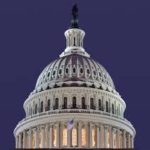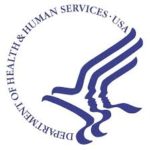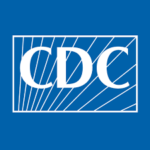The following is the latest health policy news from the federal government for September 1-7. Some of the language used below is taken directly from government documents.
ASH Advocacy
The Alliance of Safety-Net Hospitals has conveyed to CMS its general support for the agency’s proposal for reimbursing participants in the federal section 340B prescription drug discount program for the lost payments they suffered when CMS reduced those payments – reductions that a federal court ruled were illegal. ASH articulated this support in a formal comment letter to CMS in response to that agency’s proposal for remedying the payment cuts. Learn more from ASH’s letter to CMS.
 Congress
Congress
House Republicans plan to introduce the Lower Cost, More Transparency Act for consideration before the end of the year. This bill includes provisions passed by three committees with health care jurisdiction: House Ways & Means, Energy & Commerce, and Education & Workforce. Some of the bill’s provisions would:
- eliminate scheduled Medicaid DSH cuts for FY 2024 and FY 2025;
- reauthorize and extend funding for the Community Health Center program, the National Health Service Corps, and the Teaching Health Centers that Operate GME program;
- establishing site-neutral payments by reducing Medicare payments for drug administration services at all hospital outpatient departments (HOPDs) to the same rate paid in non-hospital-based physician offices; and
- increase reporting requirements for pharmacy benefit managers (PBMs) and ban certain spread pricing practices.
A few provisions included in bills already approved by Ways & Means and Energy & Commerce are excluded from this proposed legislation. The draft of the Lower Cost, More Transparency Act does not include provisions that would:
- require providers to obtain location-specific National Provider Identifiers (NPIs) for each HOPD and use those NPIs for billing government payers;
- require all HOPDs to provide a provider-based attestation; and
- require change-of-ownership disclosures for health care facilities.
The House returns to Washington D.C. next week, following a six-week recess, and will focus on funding the federal government or face a federal government shut-down on October 1. While House Republicans are expected to introduce this bill soon, it is unclear when it will be considered. House Democrats support many of its provisions but Democratic committee leaders will seek adjustments to the proposal.
- Lower Cost, More Transparency Act bill text here;
- Lower Cost, More Transparency Act section-by-section summary from House majority committee leaders here.

- CMS has issued a proposed nursing home staffing rule that seeks to establish comprehensive staffing requirements for nursing homes, including national minimum nurse staffing standards. CMS maintains that the requirements are needed because of “…safety and quality concerns [that] stem, at least in part, from chronic understaffing in LTC facilities, and are particularly associated with insufficient numbers of registered nurses (RNs) and nurse aides (NAs)…” Under its proposal, nursing homes participating in Medicare and Medicaid would be required to meet specific nurse staffing levels – levels that CMS estimates 75 percent of nursing homes do not meet today. CMS believes its proposed requirements will increase community discharges and reduce hospitalizations and emergency department visits. CMS also proposes requiring states to collect and report on compensation for workers as a percentage of Medicaid payments for those working in nursing homes and intermediate-care facilities. To increase transparency, enhance enforcement of existing standards, increase accountability, and ensure safe, high-quality, and dignified care, CMS and the HHS Office of the Inspector General will increase audits of nursing homes’ staffing; improve nursing home inspections; provide additional oversight of how nursing homes use payments they receive from Medicare and Medicaid; crack down on inappropriate anti-psychotic prescribing practices and risks; and seek to enhance resident safety during emergencies. Stakeholder comments are due by November 6. Learn more about CMS’s nursing home staffing proposal from a CMS news release; this CMS fact sheet; and the proposed rule itself.
- CMS has introduced what it calls a “transformative model” that will seek to test states’ ability to improve the overall health care management of their state population. Its “States Advancing All-Payer Health Equity Approaches and Development Model” (“AHEAD Model”) is a total cost of care model that seeks to better address chronic disease, behavioral health, and other medical conditions by equipping states better to promote health equity, increase access to primary care services, set health care expenditures on a more sustainable trajectory, and lower health care costs for patients. Through this voluntary model, CMS will partner with states to redesign state-wide and region-wide health care delivery to attempt to improve the total population health of a participating state or region by improving the quality and efficacy of care delivery, reducing health disparities, and improving health outcomes. AHEAD also includes specific payment models for participating hospitals and primary care practices as a tool for achieving model goals. Through AHEAD, CMS seeks to strengthen primary care, improve care coordination for people with Medicare and Medicaid, and increase screening and referrals to community resources like housing and transportation to address social drivers of health. Under the AHEAD Model, participating states will take accountability for health care spending, population health, and health equity improvements, partnering with hospitals and primary care practices to redesign care. Additionally, a primary role of states participating in the AHEAD Model will be to leverage existing relationships to recruit and partner with hospitals for purposes of hospital global budgets: participating hospitals will receive a fixed payment amount in advance of a prospectively set budget per year. These payments would be for both traditional Medicare and Medicaid, while other payers may also choose to pay participating hospitals based on a global budget for their enrolled populations or specific patient groups. Providers would have financial incentives for improving population health and equity outcomes. CMS will issue awards to up to eight states for as much as $12 million each to support state implementation. States will have two opportunities – one later this fall and another next spring – to apply to participate. Learn more about the AHEAD Model from this CMS news release and the AHEAD Model web page.
- CMS has published “Evaluation and Management Services Guide,” which presents detailed information about changes in the 2023 Medicare physician fee schedule final rule. Find it here.
- CMS has published a bulletin describing changes to and billing instructions for various payment policies it is implementing in the ambulatory surgical center payment system as of October 1. Find that bulletin here.
- CMS’s Office of Minority Health has posted a new Z code infographic that seeks to help providers understand and use Z codes to improve the quality and collection of social determinants of health and health equity data. Find that infographic here.
- CMS has posted a video that provides an overview of the Medicare Ground Ambulance Data Collection System. The video addresses the questions that selected ground ambulance organizations must respond to when they report under this system. Find that video here and find additional information about ground ambulance data reporting from this CMS notice.
 Department of Health and Human Services
Department of Health and Human Services
- HHS has proposed updating and amending its section 504 regulation under the Rehabilitation Act of 1973 to protect the civil rights of individuals with disabilities. The proposed rule would add new provisions that clarify existing requirements under section 504 prohibiting recipients of HHS financial assistance from discriminating on the basis of disability in their programs and activities, including in health care, child welfare, and other human services. The proposed rule includes new requirements prohibiting discrimination in the areas of medical treatment; guidelines on the use of value assessments; web, mobile, and kiosk accessibility, and requirements for accessible medical equipment. The proposed rule also would update the definition of disability and other provisions to ensure consistency with statutory amendments to the Rehabilitation Act, the Americans with Disabilities Act and its amendments, the Affordable Care Act, and Supreme Court and other significant court cases. It also further clarifies the obligation to provide services in the most integrated setting. The proposed rule calls for other clarifying changes, including revising outdated terminology and references. Learn more from this pre-publication version of the proposed regulation. Stakeholder comments are due by November 7.
- HHS’s Provider Relief Fund Reporting Portal is now open for Reporting Period 5. Providers that received a Provider Relief Fund (general or targeted) and/or American Rescue Plan Rural payment(s) exceeding $10,000 in the aggregate between January 1 and June 30 of 2022 are required to report on their use of funds during Reporting Period 5. The deadline to submit a report is September 30. Learn more here.
- HHS’s Office of the Inspector General has issued a new report concluding that one quarter of Medicaid participants with HIV may not have received critical services in 2021. Find a summary of that report here and the full report here.
- HHS’s Office of the Inspector General has found that home health agencies have failed to report more than half of falls among their Medicare patients that resulted in major injuries and hospitalization. Find a summary of that report here and the full report here.
HHS Newsletters
- MLN Connects (CMS) – September 7
- AHRQ News Now – September 5
- HRSA eNews – September 7
 Centers for Disease Control and Prevention
Centers for Disease Control and Prevention
- The CDC has issued a health alert notifying clinicians and caregivers about increases in respiratory syncytial virus (RSV) activity across some parts of the southeastern United States in recent weeks, suggesting a continued shift toward seasonal RSV trends observed prior to the COVID-19 pandemic. Historically, such regional increases have predicted the beginning of RSV season nationally, with increased RSV activity spreading north and west over the following two to three months. The alert provides background information about RSV, identifies vulnerable populations, outlines vaccination options, describes treatment, and provides links to additional resources. Find the alert here.
- The CDC has issued a health alert notifying providers, laboratories, and public health departments about recent reports of fatal Vibrio vulnificus (V. vulnificus ) infections, including wound and food-borne infections, occurring primarily among people with infected wounds who were exposed to coastal waters, particularly near the Gulf of Mexico or along the east coast and during periods with warmer coastal sea surface temperatures. The health alert provides background information about the infections and how to diagnose and treat them; offers recommendations for laboratories, public health officials, and the public; outlines provider and laboratory reporting requirements; and provides links to additional resources. Find the alert here.
- The CDC has awarded $279 million to 49 states, the District of Columbia, and 40 local health departments to help stop overdoses within their communities. Learn more from this CDC news release.
Medicare Payment Advisory Commission (MedPAC)
MedPAC has submitted formal comments to CMS in response to the latter’s proposed rule addressing its four years of underpayments to participants in the federal section 340B prescription drug discount program. In that proposed rule CMS proposes a remedy to the underpayments in light of a federal court finding those underpayments illegal, and in its letter MedPAC expresses its general support for CMS’s proposed solution. Learn more from MedPAC’s letter to CMS about the proposed 340B remedy.

HHS – HRSA – National Telehealth Conference – September 12
HHS’s Health Resources and Services Administration (HRSA) will host a virtual National Telehealth Conference that brings public and private sector leaders together to discuss telehealth best practices, including balancing telehealth solutions and in-person services. The conference, to be held on Tuesday, September 12, will examine the importance of integrating telehealth into standard care. Go here to learn more about the conference and to register to participate.
DEA – Listening Session on the Remote Prescribing of Controlled Substances – September 12-13
The Drug Enforcement Administration will conduct public listening sessions to receive input from stakeholders about the practice of telemedicine involving controlled substances and potential safeguards that could effectively prevent and detect diversion of controlled substances prescribed via telemedicine. The listening sessions will be held on Tuesday, September 12 and Wednesday, September 13 at 9:00 (eastern) at DEA headquarters in Arlington, Virginia and also will stream live online. Learn more about the sessions and how to participate from this DEA announcement, which includes a link to a Federal Register notice.
HHS – National Coordinator for Health Information Technology – Security Risk Assessment Tool Webinar – September 13 and 14
HHS’s Office for Civil Rights and its Office of the National Coordinator for Health Information Technology (ONC) will host webinars for the release of version 3.4 of the Security Risk Assessment (SRA) Tool on Wednesday, September 13 and Thursday, September 14 (at noon (eastern) on both days). The tool is designed to aid small and medium-sized health care organizations in their efforts to assess security risks and offers a variety of feature enhancements based on user feedback and public input. Registration is limited to 3,000 participants for each presentation; the presentations will cover the same material on both days. Go here to register for the September 13 session and here to register for the September 14 session.
Agency for Healthcare Research and Quality – CAHPS Program – September 13
HHS’s Agency for Healthcare Research and Quality (AHRQ) will hold a webinar on about how its Consumer Assessment of Healthcare Providers and Systems (CAHPS) program is addressing stakeholders’ emerging needs for patient experience measurement and improvement. Speakers will discuss recent survey updates, the development of new surveys to address current information needs and the use of survey results to improve patient experience. The webinar will be held on Wednesday, September 13 at noon (eastern). Go here to learn more about the webinar and to register to participate.
CDC – Webinar for Clinicians on Flu, COVID-19, and RSV Vaccines for Older Adults – September 19
The CDC will hold a webinar for clinicians offering its recommendations for flu, COVID-19, and RSV vaccines for older adults during the upcoming fall/winter season on Tuesday, September 19 at 2:00 (eastern). Learn more about the webinar, including how to participate, from this CDC notice. Continuing education credits are offered for participation.
MACPAC – Commissioners’ Public Meeting – September 21-22
Members of the Medicaid and CHIP Payment and Access Commission (MACPAC) will hold their next public meeting on Thursday, September 21 and Friday, September 22. Go here to register to participate.
CMS – Medicaid and CHIP – September 27 (and future dates)
HHS and CMS host a series of monthly webinars on Medicaid and CHIP renewals to educate partners. Topic covered vary each month. Go here to register for upcoming webinars.
- September 27 at 12:00 pm (eastern)
- October 25 at 12:00 pm (eastern)
- December 6 at 12:00 pm (eastern)
Recordings, transcripts, and slides from past webinars can be found on the CMS National Stakeholder Calls webpage.
CMS – Patient-Focused Listening Sessions on Medicare Drug Price Negotiations – October 30-November 15
CMS will host a series of patient-focused listening sessions this fall as part of the Medicare Drug Price Negotiation Program. The virtual public listening sessions will provide an opportunity for patients, beneficiaries, caregivers, consumer and patient organizations, and other interested parties to share input relevant to drugs selected for the first round of negotiations. Learn more about the listening sessions, the schedule for these sessions, the individual drugs to be discussed at each, and how to participate from the CMS drug listening session web page.
CMS – Burden Reduction Conference – November 15
CMS will convene leadership from the federal government, health provider organizations, and the patient advocacy community to focus on opportunities across the health care enterprise to reduce administrative burden, strengthen access to quality care, and make it easier for clinicians to provide that care during a day-long virtual conference it will hold on Wednesday, November 15 beginning at 9:00 (eastern). Go here to learn more about the conference and find a link for registration.

